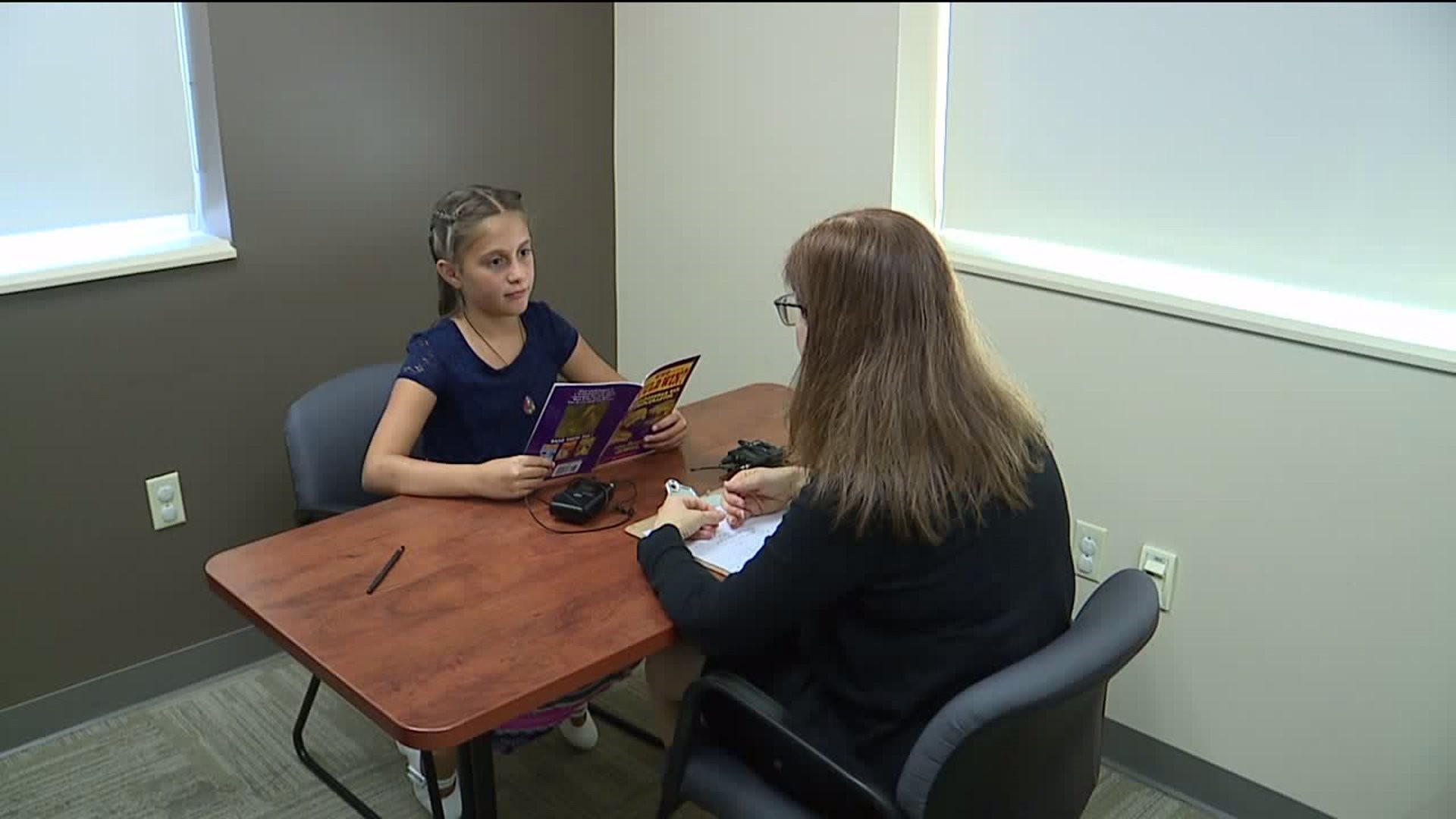DALLAS, Pa. -- There's a communication disorder you may not have heard of known as cluttering.
It's been studied since the 1960s, but awareness of it has only happened in the past 20 years or so, according to a professor of speech-language pathology at Misericordia University.
Amara Ercolano, age 9, loves science and tacos and dinosaurs and she has a great laugh.
She has also been diagnosed with a communication disorder called cluttering.
"I sometimes don't know when I have to repeat. So, when I was 5 and in kindergarten, I didn't know what the heck was going on!" Amara said.
Neither did her mom, at first, who remembers Amara talking, in her words, like a little auctioneer.
"I knew she talked really fast, I knew she was hard to understand. But I thought it was something she'd grow out of. I never thought it was a real issue," Reina Ercolano said.
"I thought it was stuttering, is what I thought, because her words were coming over each other, and they told me it was cluttering," Amara added.
Amara has been treated for a few years at Misericordia University's Speech-Language and Hearing Center, on its lower campus in Dallas.
We got to watch as Dr. Kathleen Scaler Scott urged Amara to read, taking care to work on her pauses.
Dr. Scaler Scott explains cluttering is a communication disorder in which a person speaking sounds fast, difficult for the listener to understand.
"A parent will say, 'Wow, my child is talking really fast and I can't understand them,' or a teacher will say that to a parent. And that will bring them into therapy and usually they don't know the name of what's going on," said Dr. Scaler Scott.
Dr. Scaler Scott wrote a book on the topic called "Fluency Plus," meant for therapists or for college professors to use in the classroom.
She's now researching how to better define the characteristics of cluttering.
Reina Ercolano says no matter how she's been treating her daughter Amara, it's working. She's improved fantastically since she's been coming here for it.
If you'd like to schedule an evaluation for a child or an adult or you need additional referral information, you can call the Speech-Language and Hearing Center at Misericordia University at 570-674-6724.

